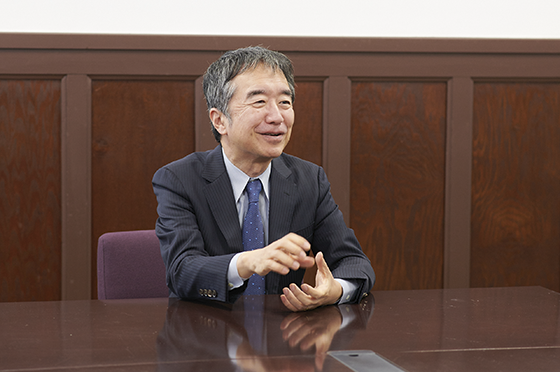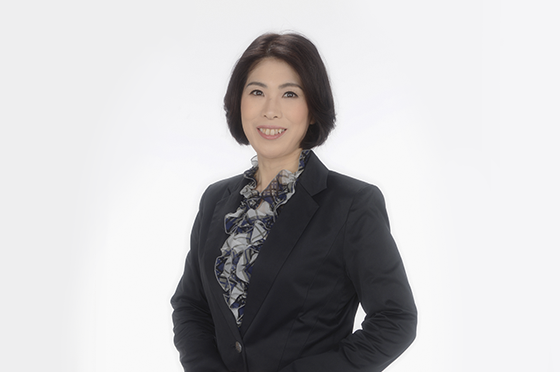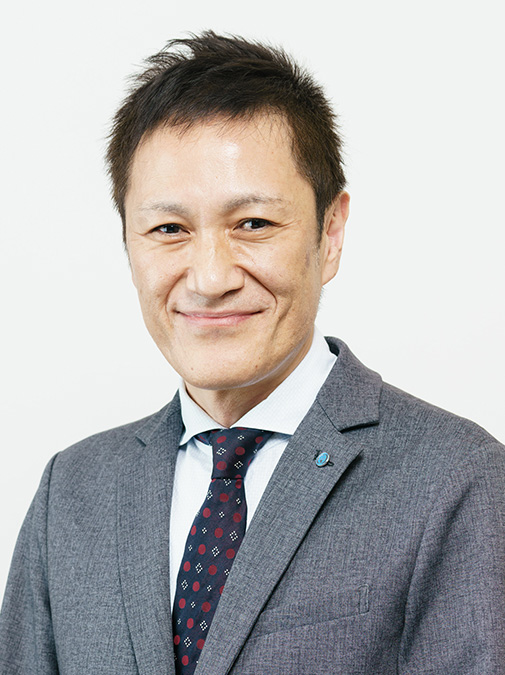Katsuhiko Kokubu
Dr. Kokubu is a professor at the
Graduate School of Business Administration, Kobe University. He completed his
PhD in Business Administration from Osaka City University. He has served as
Dean of the Graduate School of Business Administration, Kobe University from
2014 to 2016 and from 2022 to the present, and as Vice President of Kobe
University from 2019 to 2021. Dr. Kokubu is Chairman of MFCA Forum Japan, and
also chairs the committee that judges the Corporate Philanthropy Award for the
Japan Philanthropic Association. He has published many books and articles
including Beyond Accountability toward Management Ethics (Yuhikaku Publishing
Co., Ltd.), and Emergent Responsible Management (Nikkei Publishing, Inc.).
Evaluation and Comments
Fiscal 2023 was the final year of the Kurita Group's medium-term management plan Maximize Value Proposition 2022 (MVP-22). It was also a year for revisiting the Group’s priority themes (materiality). The Company pursued initiatives related to CSR and strengthened its CSR foundation, engaging with stakeholders around its seven priority themes and initiatives toward their corresponding 12 key performance indicators and using their feedback to verify the initiatives. The Company achieved all the maintenance targets for its basic themes. However, because the target of improving customer environmental impact includes elements that are out of Kurita’s control, the Company missed some of its targets in the four growth opportunity themes. Decision-making on the part of customers has a significant impact on whether Kurita can achieve its targets. While this had already been raised as an issue, the fact that Kurita was unable to achieve its targets for that reason calls into question the way of evaluating performance. In Pioneering Shared Value 2027 (PSV-27), the new medium-term management plan launched in fiscal 2024, the Company further broadened the scope of its materiality, setting a new priority theme: to “contribute to building a circular economy society.” We believe forming closer relationships with customers will help Kurita resolve the issues it faces in achieving its targets. Our hope is that the Company will further reduce the environmental impact of society through new initiatives around the crucial theme of water and through collaborative creation between the Kurita Group and its customers.
The PSV-27 plan sets out eight categories of materiality and has now expanded to include 24 key performance indicators. We see the theme, to “solve issues related to water resources,” as particularly vital. We believe that the Kurita Group, as a founding member of WRC, can draw on the models it has accumulated for calculating the impact of environmental improvements for customers in helping both to develop common global rules for corporate water resource conservation and recovery actions and in efforts to build a data platform. The International Sustainability Standards Board (ISSB) and other bodies are currently drawing up disclosure guidelines to address calls for a transition to a low-carbon and carbon-neutral society. We can expect issues demanding a response to continue increasing going forward, and there will likely be urgent calls to create guidelines around the critical theme of water resources. We look for the Kurita Group to play an important role in this area. Another newly added category of materiality is “strategic development and utilization of human resources.” We appreciate the inclusion of this theme, which will be pivotal in terms of achieving targets in the other categories of materiality. Kurita has to create a framework in which each employee's purpose is to help achieve the Group’s Materiality. Going forward, we encourage Kurita to keep in mind the importance of incorporating outside perspectives when selecting categories of materiality.
The Kurita Group has steadily pursued initiatives related to CSR. In the new PSV-27 plan, the Company has positioned sustainability at the core of management. It has also enhanced the framework for working across the organization, having established a Sustainability Division to carry its actions forward as a global company. We look for Kurita to take further action in other areas going forward, including the response to human rights issues overseas and areas related to human capital. However, we expect three themes— “solve issues related to water resources,” “contribute to the realization of a decarbonized society,” and “contribute to building a circular economy society”—to be the driving force behind the Company’s sustainability in the future. Because we consider how the Company moves forward in these areas to be very important, if possible, we suggest setting up an annual forum to gather outside opinions and provide an opportunity to get feedback on matters such as the direction and extent of Kurita’s actions. By disclosing the results of this kind of forum to outside stakeholders, the Kurita Group can gain even greater understanding and support.
Finally, we conducted a basic check of Kurita’s environmental performance data collection and social data and found no significant errors.

Katsuhiko Kokubu

Eriko Nashioka
Eriko Nashioka
Ms. Nashioka is a Certified Public
Accountant and Director of the Institute for Environmental Management
Accounting (IEMA). She joined IEMA in 2004 after working as a senior
researcher at the Kansai Research Center of the Institute for Global
Environmental Strategies (IGES), a major auditing firm. She is a member of the
Sustainability Subcommittee of the Internal/External Officer Accountant
Research Special Committee of the Japanese Institute of Certified Public
Accountants. She is also an external officer of three listed companies
including Osaka Gas Co., Ltd.
Response to Third-Party Opinion

Hisashi Tanabe
Corporate Officer
Executive General Manager
of Sustainability Division
Thank you, Professor Kokubu and Ms. Nashioka, for your invaluable comments.
Under
the MVP-22 plan, the Kurita Group positioned CSR at the core of our management,
established materiality as Kurita’s CSR Policy, set materiality metrics and
targets, and worked to achieve these targets. In addition, we sought to make
disclosure and engage with various stakeholders based on GRI Standards, TCFD
recommendations, and other international standards, using the issues they
identified to verify our CSR initiatives. As a result, we achieved all metrics
and targets for the basic themes related to safety, fairness, and human rights.
I believe we also strengthened the foundation for our management and business
activities, including the start of human rights due diligence initiatives. On
the other hand, regarding the themes for growth opportunities related to water,
CO2 emissions, and waste, although we were able to continue improving
customer environmental impact by expanding the CSV business, we were unable to
achieve our targets other than the target for CO2
emissions reduction. The fact that we were unable to achieve our targets for
indicators related to water, which is the core mission of the Kurita Group, is a
particularly serious matter and, as you pointed out, we recognize that this is
an ongoing issue.
Under the PSV-27 plan, which started in fiscal 2024, our concept of CSR at the
core of management was extended to include sustainability. Based on this, we
identified key issues as the Kurita Group’s Materiality to guide us in achieving
our corporate vision. We have also expanded our metrics and targets. Revisions
to our materiality arose out of deliberations among the E&S Committee and
external directors. Their report was then discussed by the Medium-Term
Management Plan Review Committee, made up primarily of Executive Committee
members, and then approved by the Board of Directors. I think we succeeded not
only in expanding the number of metrics and targets but also strengthening them
in terms of quality. For example, for the reduction rate for Scope 1 and 2
emissions, a theme carried over from the MVP-22 plan, we set a challenging
target of a 100% reduction by fiscal 2031. In addition, we will work to
eliminate trade-offs for our natural capital as we seek to address multiple
aspects of materiality. For this reason, we set a new metric, “Rate of reduction
in the ratio of GHG emissions to water savings through CSV business.” Our aim is
to halve such emissions per every cubic meter of water saved.
We set up a
Sustainability Division, bringing together relevant departments to work together
across the Group in addressing materiality, which we have expanded in terms of
both quantity and quality. We also renamed the E&S Committee as the
Sustainability Committee. In addition, Kurita Water Industries transitioned to a
Company with a Nominating committee, etc. by a resolution of the June 2023
General Meeting of Shareholders. Going forward, oversight of materiality
initiatives will be strengthened, informed by the perspectives of various
stakeholders. As both head of the Sustainability Division and chair of the
Sustainability Committee, I will be attentive to vast, rapidly changing global
developments in sustainability and issues I have learned about by engaging with
stakeholders. Under the theme of shared value themes which is related to
creating shared value with society, I will encourage the Group to expand our
impact on society and the environment by revisiting the value of addressing
issues related to water. Meanwhile, in terms of “Basic themes, I will lead the
Group in building greater trust with all our stakeholders, which is properly the
foundation of all our management and business activities.
Underlying both our CSR initiatives under the MVP-22 plan and our sustainability initiatives under the PSV-27 plan is the desire to grow sustainably with society. This ambition has been passed down within the Kurita Group since our founding, and is given expression in our corporate philosophy: “Study the properties of water, master them, and we will create an environment in which nature and humanity are in harmony.” The Kurita Group will continue striving to make this corporate philosophy a reality.

